Search
Search Results

Article
Reforms of Catherine the Great
Catherine II of Russia (Catherine the Great) was the empress regent of Russia from 1762 to 1796. During the mid-18th century, Russia was still regarded as culturally behind compared to Western European countries. However, during her reign...
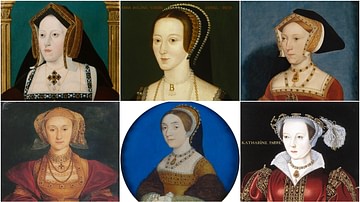
Article
The Six Wives of Henry VIII
In his search to secure the continuation of the Tudor line, Henry VIII of England (r. 1509-1547 CE) married an incredible six times. Some marriages were the result of passion while others were arranged for political reasons. One divorce caused...

Article
Magic in Ancient Greece
For the Greeks magic (mageia or goeteia) was a wide-ranging topic which involved spells and evil prayers (epoidai), curse tablets (katadesmoi), enhancing drugs and deadly poisons (pharmaka), amulets (periapta) and powerful love potions (philtra...
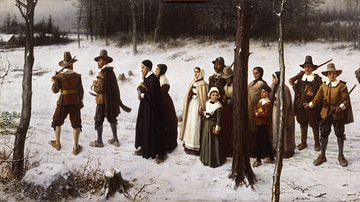
Article
Religion in Colonial America
Religion in Colonial America was dominated by Christianity although Judaism was practiced in small communities after 1654. Christian denominations included Anglicans, Baptists, Catholics, Congregationalists, German Pietists, Lutherans, Methodists...

Article
Daily Life in the Byzantine Empire
Daily life in the Byzantine Empire, like almost everywhere else before or since, largely depended on one's birth and the social circumstances of one's parents. There were some opportunities for advancement based on education, the accumulation...
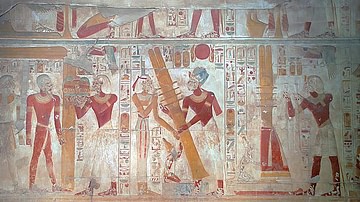
Article
The Forty-Two Judges
The Forty-Two Judges were divine entities associated with the afterlife in ancient Egypt and, specifically, the judgment of the soul in the Hall of Truth. The soul would recite the Negative Confession in their presence as well as other gods...

Article
A Visual Who's Who of Greek Mythology
Achilles The hero of the Trojan War, leader of the Myrmidons, slayer of Hector and Greece's greatest warrior, who sadly came unstuck when Paris sent a flying arrow guided by Apollo, which caught him in his only weak spot, his heel. Adonis...

Article
Dogs in the Ancient World
Dogs have been a part of the history of human beings since before the written word. The ancient temple of Gobekli-Tepe in Turkey, dated to at least 12,000 years BCE, has provided archaeologists with evidence of domesticated dogs in the Middle...
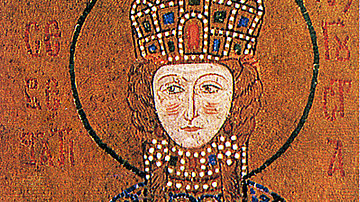
Article
Women in the Byzantine Empire
Women in the Byzantine Empire (4th to 15th century CE) were, amongst the upper classes, largely expected to supervise the family home and raise children while those who had to work for a living did so in most of the industries of the period...
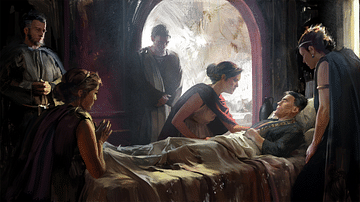
Article
Drugs & Pharmaceuticals in Ancient Rome
Physicians in ancient Rome manufactured a wide variety of pharmaceuticals used to treat health concerns. Roman medicine was highly sophisticated, and Roman medical literature describes early antiseptics, narcotics, and anti-inflammatory medicines...